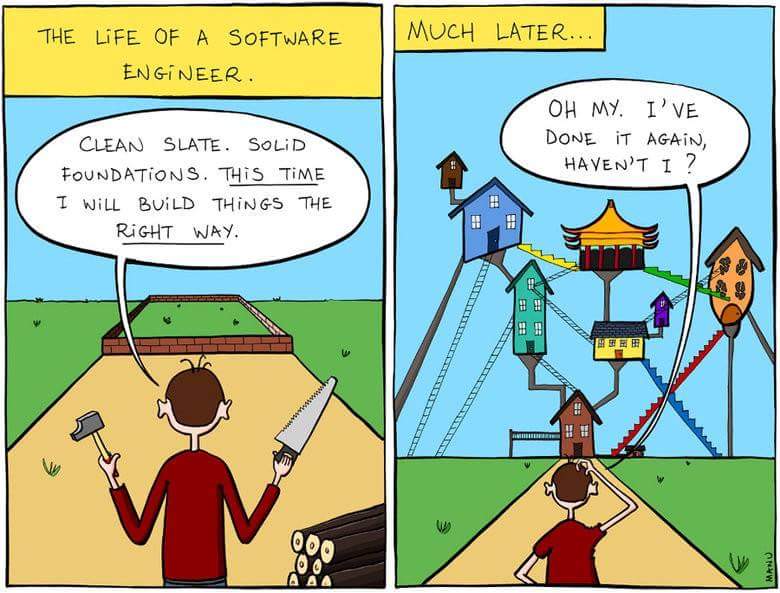Join devRant
Do all the things like
++ or -- rants, post your own rants, comment on others' rants and build your customized dev avatar
Sign Up
Pipeless API

From the creators of devRant, Pipeless lets you power real-time personalized recommendations and activity feeds using a simple API
Learn More
Related Rants

 Implementing the application exactly like the client specified, because they won't listen.
Implementing the application exactly like the client specified, because they won't listen. Life of Programmer
Life of Programmer
ok found the object orientated guide but for rust which is functional spaghetti: https://howtocodeit.com/articles/...
it has moved into architecture
... and actually makes a good case for interfaces / traits. generally in languages I just used generics to get around limitations of having to type a lot / duplicate code, and I'd remove interfaces because they're annoying to have to deal with, but I can see this be useful for once now.
like you can start a prototype app with files as a database then move to a small database type then later a more monolithic big data one and all that would be through one trait the whole time. so you could anticipate natural progressions of an app, instead of having to build the last version you can put jank behind interfaces and then switch things in and out to test new technologies which does actually give me a lot of relief for my newfound anxiety of me rewriting my rust codebases because I get some small things wrong. I've been coding in circles due to it and I have several saved files that are out of date now but I don't want to delete and they make the compiler mad cuz I had no interface boundaries as such and now stuff has changed somewhere else in the app and by God pls argh
this also means you can code "top-down". in carl Jung typology that's Te and most programmers are Ti-types so they do the little details and then sort of glue everything together (?) but not everybody thinks this way. I naturally think more top-down, which works for more dynamic languages and is annoying in static languages because then you're just fighting semantics and your earlier work the whole time (actually this is a surprisingly good write-up on the different thinking types: https://bothsidesofthetable.com/the...)
wheeeee
random
rust
architecture